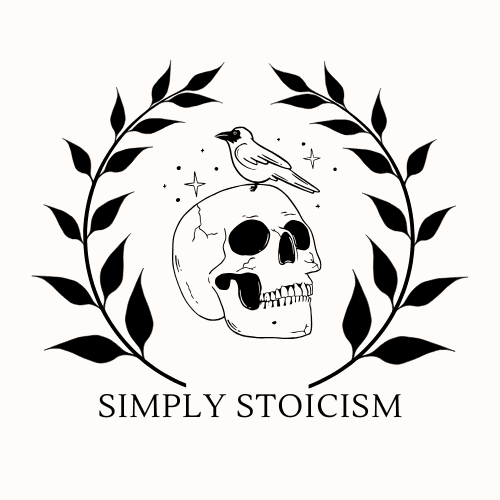Who Was Seneca? The Stoic Who Mastered Life's Extremes
Discover how Seneca, Rome's greatest Stoic philosopher, mastered life's extremes. Learn practical wisdom from a man who faced exile, power, wealth, and death with remarkable grace.

Jon High
·
Dec 31, 2024
Imagine having the ear of the most powerful person in the world, amassing a fortune beyond measure, and being considered one of history's greatest philosophers — all while knowing that at any moment, everything could be taken away. That was the extraordinary life of Seneca, a man who scaled the heights of power and success, only to face exile, death threats, and ultimately, a command to take his own life.
But what makes Seneca's story truly remarkable isn't just its dramatic turns. It's how eerily relevant his teachings feel today — especially his insights on managing wealth without being consumed by it, staying true to your principles in toxic workplaces, and finding peace amidst constant uncertainty. Whether you're dealing with workplace stress, relationship challenges, or the endless distractions of modern life, Seneca offers practical wisdom that feels like it could have been written yesterday.
Early Life and Education
Born in Cordoba, Spain around 4 BC, Lucius Annaeus Seneca grew up in a world of privilege and adversity. As a young man, he struggled with severe asthma that nearly drove him to suicide. Yet it was this early brush with mortality that helped shape his philosophical outlook.
"Disease brought me to philosophy," he would later write. "Sometimes good health is an obstacle to the mind." This early experience taught him a lesson many of us are still learning today: our greatest challenges often become our greatest teachers.
Seneca's father, a wealthy rhetoric teacher, sent him to Rome for education. There, he discovered Stoic philosophy, though he would study widely across different schools of thought. This broad education would later influence his practical, results-focused approach to wisdom — an approach that valued what worked over rigid adherence to any single system.
Life at the Imperial Court
If you think office politics are bad today, imagine working for Nero — one of history's most notorious emperors. As Nero's tutor and later advisor, Seneca walked a tightrope between maintaining his philosophical principles and surviving in a world of deadly court intrigue.
During this period, Seneca amassed enormous wealth, leading to one of the most interesting contradictions of his life: here was a philosopher who preached moderation while becoming one of Rome's richest men. Sound familiar? Think of today's tech billionaires promoting minimalism from their massive mansions.
Yet unlike many modern wealthy philosophers, Seneca addressed this contradiction head-on:
"The philosopher can own wealth, but must not let wealth own them."
He argued that it wasn't money itself that was the problem, but our attachment to it — a distinction that remains relevant in today's complex relationship with wealth and success.
Key Philosophical Works and Ideas
Seneca's philosophical writings are remarkable for both their breadth and accessibility. His major works include:
On the Shortness of Life
In this seminal work, Seneca tackles a paradox we still struggle with: why does life feel so short, yet we waste so much of it? His answer is profound: "It is not that we have a short time to live, but that we waste a lot of it. Life is long enough, and a sufficiently generous amount has been given to us for the highest achievements if it were all well invested."
Modern Application:
Audit your time use for one week, tracking where every hour goes
Identify your "time thieves" - activities that drain time without providing value
Create clear boundaries between work, rest, and meaningful leisure
Practice saying "no" to commitments that don't align with your values
Letters to Lucilius
Perhaps his most accessible work, these letters cover practical topics like:
Dealing with anxiety and fear
Ancient wisdom: "We suffer more often in imagination than in reality"
Modern practice: Use the "fear-setting" technique - write down your worst-case scenarios and plan for them
Real-world example: Before a job interview, list everything that could go wrong and prepare accordingly
Handling success and failure
Ancient wisdom: "Success is as dangerous as failure"
Modern practice: Create a "success protocol" to stay grounded during good times
Real-world example: After a promotion, maintain the same lifestyle for six months
Managing relationships
Ancient wisdom: "Associate with people who make you better"
Modern practice: Regular audit of your five closest relationships
Real-world example: Schedule monthly coffee dates with mentors or inspiring friends
On Anger
This treatise feels particularly relevant in our age of online outrage. Seneca provides a three-step process for managing anger:
Recognition: Learn to spot anger's physical signs
Pause: Create space between trigger and response
Perspective: Consider whether the situation will matter in a month
Modern Application:
Use the "24-hour rule" before responding to provocative emails
Practice "perspective-shifting" exercises during conflicts
Maintain an "anger journal" to identify patterns and triggers
How to Start Studying Seneca
For those new to Seneca's work, here's a structured approach to begin your study:
Step 1: Begin with the Letters
Start with "Letters to Lucilius" - they're shorter, more accessible, and cover practical topics. Begin with letters 1, 2, and 13, which cover time management, friendship, and dealing with fear.
Reading Strategy:
Read one letter per week
Write a one-paragraph modern interpretation
Identify one practical application
Implement that application for seven days
Journal about the results
Step 2: Move to the Essays
After the letters, tackle "On the Shortness of Life" and "On the Happy Life." These longer works build on themes from the letters but offer deeper insight.
Study Approach:
Read each essay twice - first for understanding, then for application
Create a "translation journal" - rewrite key ideas in modern terms
Share insights with others to test your understanding
Join online communities discussing Stoic philosophy
Step 3: Advanced Study
Once comfortable with the basics, explore:
"On Providence" - dealing with adversity
"On Tranquility of Mind" - finding peace in chaos
"On Anger" - emotional management
"Natural Questions" - understanding nature and science
Top 10 Seneca Quotes for Modern Life
"We suffer more often in imagination than in reality."
Modern application: Next time anxiety strikes, ask yourself how many of your past worries actually came true.
"It is not that we have so little time but that we lose so much."
Modern application: Track your screen time for a week. You might be surprised at where your time actually goes.
"Luck is what happens when preparation meets opportunity."
Modern application: Instead of waiting for the perfect moment, focus on being ready when opportunities arise.
"He who is everywhere is nowhere."
Modern application: In our age of constant connectivity, try setting specific times for focused work without distractions.
"Difficulties strengthen the mind, as labor does the body."
Modern application: View challenges as growth opportunities rather than obstacles.
"If you really want to escape the things that harass you, what you're needing is not to be in a different place but to be a different person."
Modern application: Before making external changes, examine what internal shifts might be needed.
"Life is long if you know how to use it."
Modern application: Start each morning by identifying your most important task for the day.
"What need is there to weep over parts of life? The whole of it calls for tears."
Modern application: Accept that life includes both joy and sorrow, and find peace in this understanding.
"No one can lead a happy life if he thinks only of himself."
Modern application: Regular volunteering or community service can provide perspective and fulfillment.
"The greatest obstacle to living is expectancy, which hangs upon tomorrow and loses today."
Modern application: Practice mindfulness to stay focused on the present moment rather than future worries.
Practical Applications for Today's Challenges
Seneca's teachings offer specific solutions for modern problems:
For Digital Overwhelm
Practice scheduled disconnection periods
Use the "sunset review" - evaluate each day's digital interactions
Apply Seneca's principles of time management to email and social media
For Career Challenges
Navigate office politics using Seneca's court experiences
Handle success without losing yourself
Build resilience for setbacks and failures
For Personal Growth
Develop a personal philosophy
Create meaningful morning and evening routines
Build better habits using Seneca's principles
Seneca's Timeless Gift: Ancient Wisdom for Modern Action
In an age of Instagram philosophers and surface-level wisdom, Seneca stands out as someone who actually lived his philosophy under the most extreme circumstances. His life reminds us that true wisdom isn't about having all the answers, but about facing life's challenges with courage, reason, and humanity.
Whether you're dealing with workplace stress, relationship challenges, or existential anxiety, Seneca's writings offer practical guidance that feels surprisingly modern. Perhaps that's because, despite all our technological progress, the core challenges of being human haven't changed much in 2,000 years.
Ready to start your journey with Seneca? Begin with Letter 1 from "Letters from a Stoic," which addresses our relationship with time. Read it slowly, take notes, and most importantly, put one idea into practice today. As Seneca himself would remind us, "Philosophy teaches us to act, not to speak."



